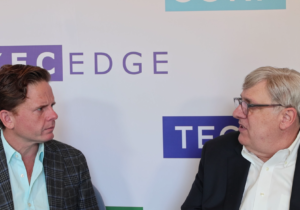Despite Healthy Stock Performance, Spotlight Remains on Poor Governance and Lavish Spending by CEO
Argo Group International Holdings looks set for a showdown next week with activist investor Voce Capital Management. The risk: Argo may be overly focused on winning a small battle at the expense of defeat in a bigger war.
Voce, run by J. Daniel Plants, seeks to improve governance at Bermuda-based Argo through a shakeup of its 13-member board. The activist’s gripes include concerns that CEO Mark E. Watson III, an avid sailor, uses company assets such as a private jet for personal pursuits and supports company sponsorship of elite events including regattas and car races. Voce argues that the company is hobbled by a heavy cost structure and needs to shed five directors who have an average tenure of 18 years on the board.
Reports over the last few days from key proxy advisors ISS and Glass Lewis suggest Voce raises some valid points. For its part, Glass Lewis has backed two of Voce’s nominees, and perhaps more importantly, recommended the current chairman step down. “[W]e believe it would be in the interests of shareholders to appoint new directors who could be reasonably expected to focus on expense management and board oversight concerns articulated by Voce,” Glass Lewis wrote in a note.
And while ISS was impressed enough by Argo’s share-price performance to back all of the company’s director recommendations, it gave Argo poor marks in other important areas related to corporate governance. “For a business that requires constant risk-assessment, it’s ironic that none of the directors saw the risk in a self-promoting CEO whose interests and hobbies were inextricably intertwined with Argo’s marketing budget. Some degree of complacency, perhaps as a byproduct of the company’s Bermuda domicile, may have played a role here,” ISS said.
Both proxy advisors agree there is room for improvement in return on equity, a key performance metric in the insurance industry, and ISS said that Argo may have tried to spin the numbers. “‘Equally frustrating is when the Argo board is unnecessarily cherry-picking in an effort to make the company look better. Choosing to report a return on average equity metric that shows a 20.1 percent return in Q1, when the 2018 return on equity was a defensible 7.1 percent, is an easily spotted example of selective reporting,” ISS said.
Even so, it’s far from clear what would happen if the matter goes to a shareholder vote. Some shareholders may decide the company gets a pass for now given its stock price performance. But it would be a mistake to think the issues highlighted by Voce and acknowledged by the proxy advisors will go away anytime soon.
Indeed, if the company gets its way, the plan is to reduce the board size to 10 members from 13 over three years. While such a move would reduce the average tenure on the board, it hardly shows any sense of immediacy.
Meanwhile, Voce is likely to remain a thorn in Argo’s side. The fund, which does a blend of activism and traditional investments, is designed to take a long-term view on stocks it owns. And when it has stuck around, companies have often seen change occur at the very top.
Consider last year’s involvement with healthcare firm Natus. Voce successfully won two seats on the board, but equally important was the pressure it put on the company to remove its chairman, Robert Gunst. While Mr. Gunst survived the vote to remove him and stayed on, he resigned just weeks later. And while Natus CEO Jim Hawkins wasn’t technically a part of the proxy contest at all, he also got the boot.
It wasn’t the first time Voce appeared to influence board and management changes beyond the scope of a proxy battle. In 2015, the chairman of brokerage ITG was pushed out just months after the most recent annual meeting.
The better solution for both parties is likely compromise. Take the recent case of Dan Loeb’s Third Point and Campbell Soup. While the company, which continues to have a very large family ownership, appeared immune to Third Point, the activist made clear it wasn’t going to give up. Ultimately, the two were able to strike a deal that included two new directors and a guarantee that Mr. Loeb would get off the company’s back.
Both Argo and Voce have suggested the other is unwilling to engage in constructive dialogue. With the annual meeting coming up next week, there’s no better time than now to start the conversation.
Contact:
John Jannarone, Editor-in-Chief
www.CorpGov.com
Twitter: @CorpGovernor






